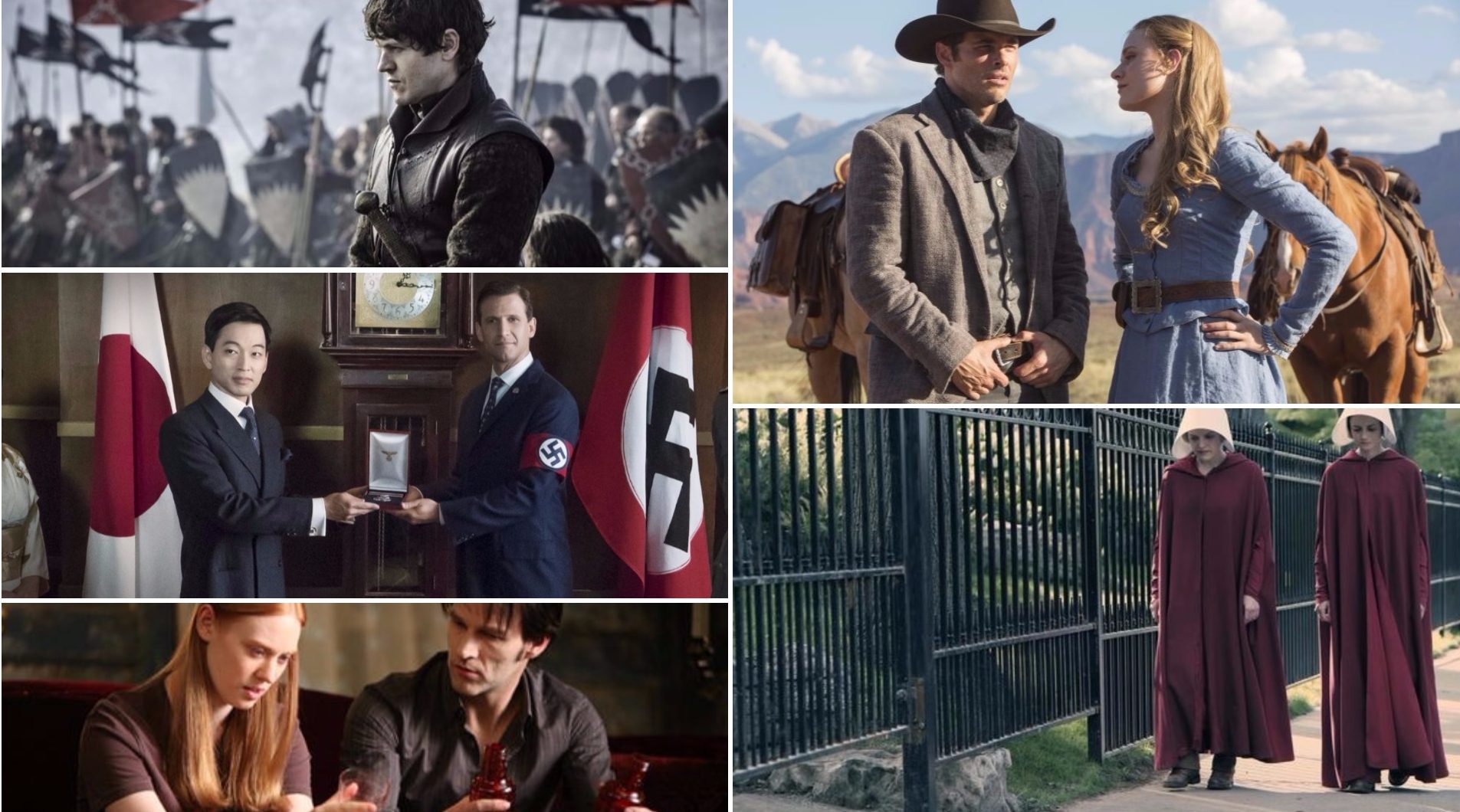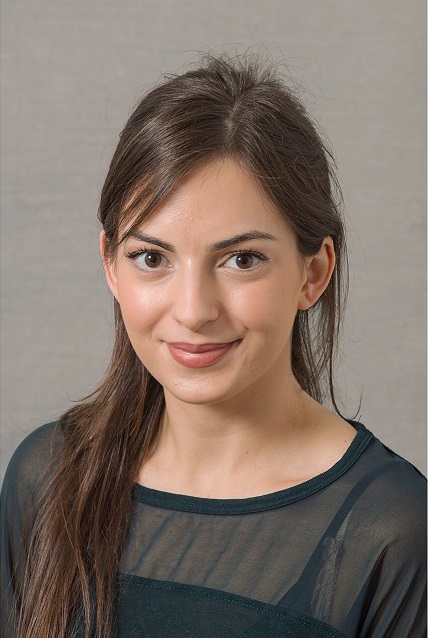If you’re anything like us, you’ve probably been hooked on the terrifying yet gripping series The Handmaid’s Tale.
Based on Margaret Atwood’s bestselling novel of the same name, it depicts the gradual erosion of human rights, with terrifying outcomes. Fertile women are forced to become ‘handmaids’, essentially reproductive surrogates for powerful society leaders. Government spies lurk everywhere. Women don’t control their own bodies. Traitors hang in the streets.
We’ve been promised a second season, but right now that’s not much consolation (the final episode aired on Channel 4 last night). Never fear though, there are plenty more TV shows with human rights dimensions to keep you going, some of which also raise some interesting questions. Here are just a few to get you started…
1. The Man in the High Castle
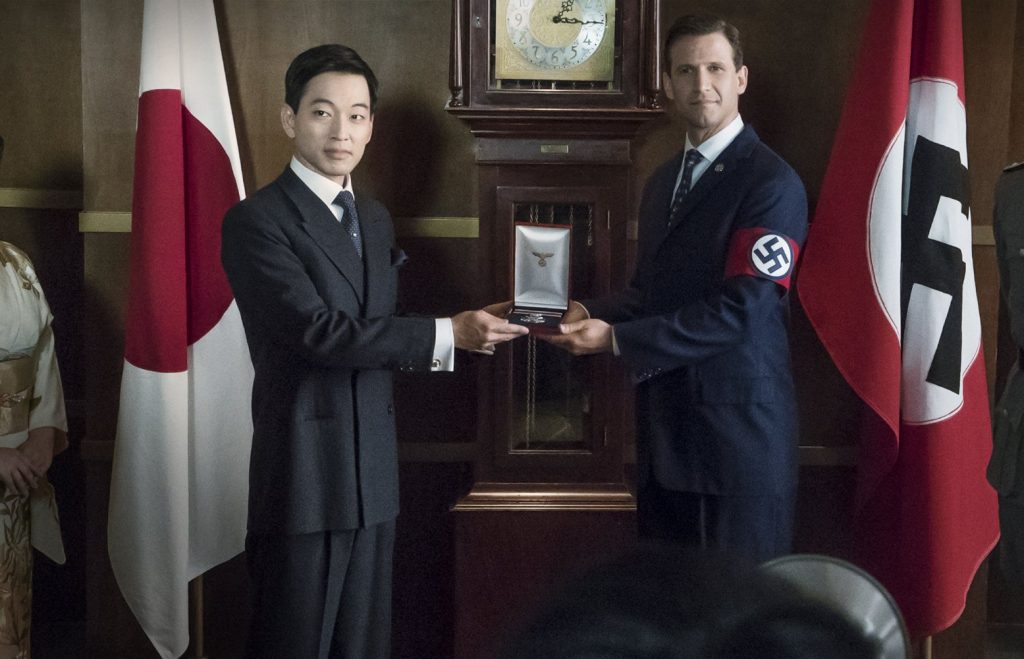
Image Credit: Amazon
Where to Watch It: Amazon Prime
Where to Read It: Philip K Dick
Dystopian series The Man in the High Castle is set in an alternative reality of 1962 America, where the Axis Powers won World War II. The governance of America is now split between the Greater Nazi Reich in the East and the Japanese Pacific States in the West.
Americans now live in a climate of fear under a totalitarian state. Any resistance or opposition to the state is repressed. The state sanctions the murder of Jewish, disabled and vulnerable people. Americans now live without many fundamental human rights: the right to life, freedom of expression and freedom from torture and discrimination, to name a few.
Such violations are characteristic of the real regimes on which the show is based. These regimes were, in part, a trigger for the development of human rights law as we know it today. The show explores a chilling hypothetical of what the world could be like without human rights.
2. Game of Thrones
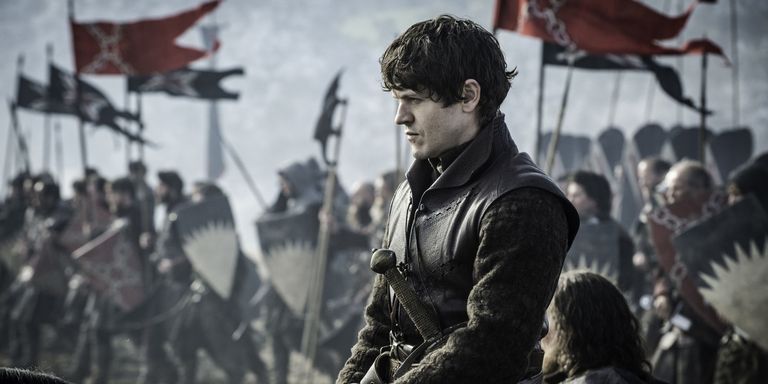
Image Credit: HBO
Where to Watch It: Sky Atlantic
Where to Read It: George R.R Martin
In fantasy drama Game of Thrones dynastic noble families battle it out for the Crown to Westeros. Those fighting for the Crown commit numerous human rights violations on their path to power. Though it is fictional, the human rights issues in the show are reflective both of our past and problems which continue to this day, such as freedom from torture and slavery, the right to life and the right to fair trial.
In addition to vesting individuals with universal rights and entitlements, human rights law functions to place checks on governments to prevent them infringing human rights. GoT brutally depicts the dangers of unfettered power.
3. The Walking Dead
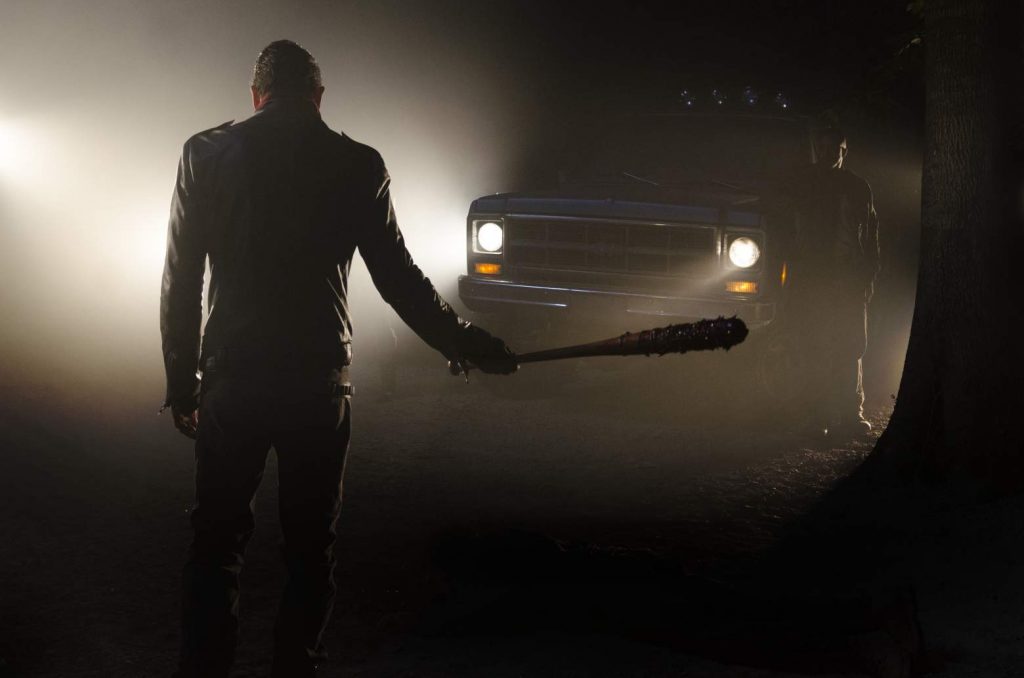
Image Credit: AMC
Where to Watch It: Netflix
Where to Read It: Robert Kirkman
We see brutal human rights violations sanctioned by the state in The Handmaid’s Tale, MHC and GoT, but what happens to human rights when there is no state?
The Walking Dead follows sheriff’s deputy Rick Grime’s efforts to survive in a stateless, post-apocalyptic world overrun by zombies (or “walkers”). So what does a show famed for mindless flesh-eating zombies have anything to do with human rights? The leading antagonists in this show are not the “walkers”, but other groups of survivors, fronted by leaders who consolidate their power through fear, violence and numerous human rights violations.
Faced with anarchy in The Walking Dead we are reminded of the role in the state in upholding human rights: it has obligations to protect, respect and fulfil human rights.
4. Westworld
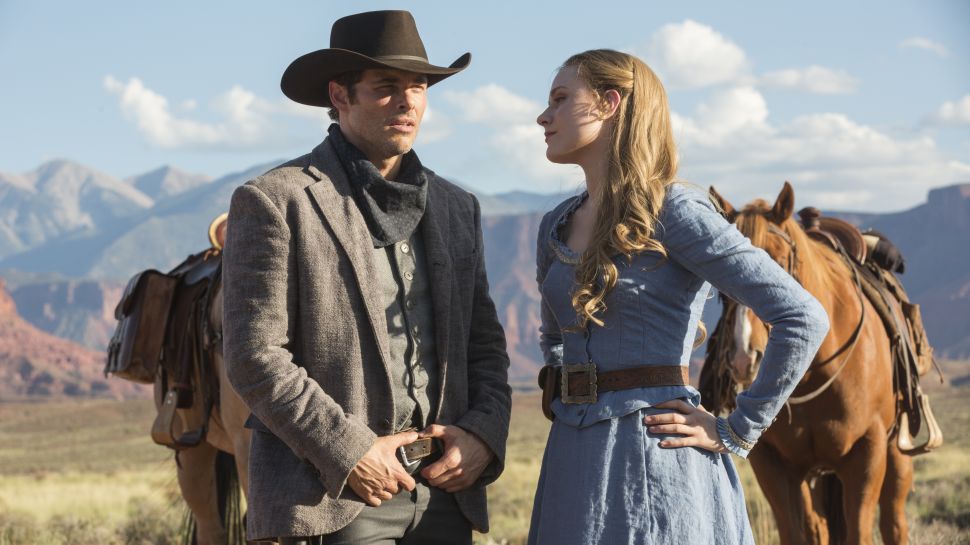
Image Credit: HBO
Where to Watch It: Sky Go or Now TV
Picture a future where technology is so advanced that there are ‘amusement parks’ that are so vast you feel like you are stepping back in time to the Wild West, with android hosts that seem so real that they are virtually indistinguishable to humans. That is the premise of science fiction western thriller Westworld.
As the show goes on, the humanity of these androids becomes more and more apparent. Yet these robots live without human right protections. Visitors to the park take advantage of this lawless man-made society by spending their time raping, torturing and murdering the android hosts.
This raises an interesting human rights question that may become relevant in coming decades as artificial intelligence technology advances: should a robot that feels and thinks like a human be vested with the same protections as others?
5. True Blood

Image Credit: HBO
Watch It Now: Amazon Prime
True Blood is a dark fantasy horror set in Louisana that revolves around the trials and tribulations of telepathic waitress Sookie Stackhouse. There has recently been a worldwide revelation that vampires exist following the invention of a synthetic blood which eliminates their need for human blood to survive.
Vampires struggle to acquire equal rights and citizenship and powerful socio-political forces resist their efforts. This struggle is reminiscent of the civil rights movements advanced by minorities in modern history. The show touches upon a number of contemporary human rights issues, including inequality, sexuality, discrimination, and the influence of the media and religion.
Too many shows, too little time…
The truth is you’re likely to find human rights dimensions in almost any TV show that you watch, whatever the genre, because human rights reach all aspects of our lives.
One thing that all these shows share is that the protagonists strive to uphold basic principles and values in the face of adversity; it is these principles and values that are codified and expressed in human rights.
Want to find out more?
- Read about the human rights dimensions of The Handmaid’s Tale and Game of Thrones
- Find out more about human rights heroes in literature and TV/movies
- Learn about your human rights and how they are protected

